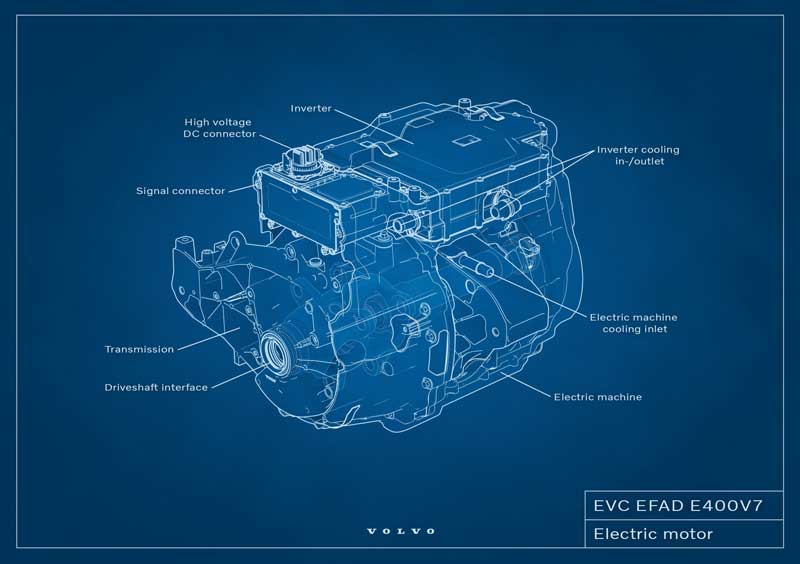Swedish automotive giant Volvo Cars has announced new investments that will enable it to begin designing and developing electric motors in-house, a move designed to propel the company towards becoming a fully electric car manufacturer.
The announcement comes at the same time as the company opened a brand new electric motor lab in Shanghai, China, which became operational last month.
The new Shanghai lab will focus on developing electric motors for use in fully electric as well as hybrid electric vehicles, based on the company’s forthcoming SPA 2 modular vehicle architecture. Volvo’s new architecture forms the basis for future models in the 90 and 60 series, in both hybrid and fully electric versions.
Volvo Cars’ new Shanghai lab is the latest in a line of new additions to the company’s global network of facilities for the development and testing of electric car components, and follows in the wake of electric motor development in Gothenburg, Sweden, and state of the art battery labs in both China and Sweden.
The hope for Volvo is that, by moving development of electric motors in-house, the company’s engineers will be able to further optimise electric motors and the entire electric driveline in new Volvos.
According to the company’s press announcement, this move will “allow engineers to make further gains in terms of energy efficiency and overall performance.”
“Through in-house design and development, we can fine-tune our e-motors to ever better levels,” said Henrik Green, chief technology officer at Volvo Cars.
“By constantly improving their overall performance levels in terms of energy efficiency and comfort, we create an electric driving experience that is unique to Volvo.”

The unspecified investments necessary to bring electric motor development in-house are the next step in the company’s strides towards its goal of ensuring 50% of vehicle sales by 2025 are fully electric, with the remaining 50% hybrids.
The first of Volvo’s all electric vehicles, the XC40 Recharge Pure Electric, was made available for order earlier this year. Retailing from £53,155 ($A98,500), the new car is not exactly an affordable entry into the all-electric vehicle space.
Capable of travelling more than 400 kilometres on a single charge, and able to be charged to 80% in as little as 40 minutes using a fast charger, the all-electric XC40 also comes with the company’s brand new infotainment system powered by Google Android.
The company’s larger goal is to become a climate-neutral company by 2040. Beyond simply addressing tailpipe emissions, Volvo Cars is also seeking to eliminate carbon emissions in its manufacturing network and wider operations, as well as in its supply chain through recycling and the reuse of materials.
As part of this larger goal, Volvo Cars is looking to reduce its lifecycle carbon footprint per car by 40% between 2018 and 2025.
Joshua S. Hill is a Melbourne-based journalist who has been writing about climate change, clean technology, and electric vehicles for over 15 years. He has been reporting on electric vehicles and clean technologies for Renew Economy and The Driven since 2012. His preferred mode of transport is his feet.


